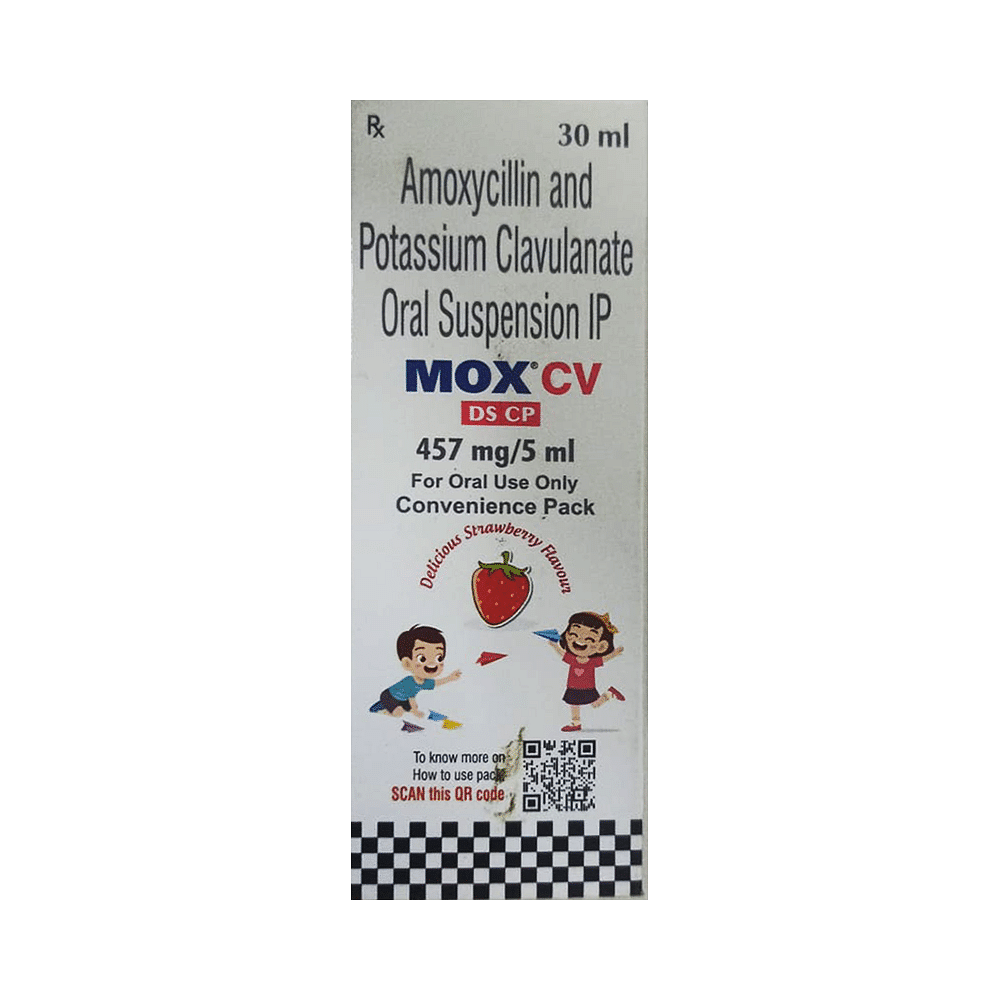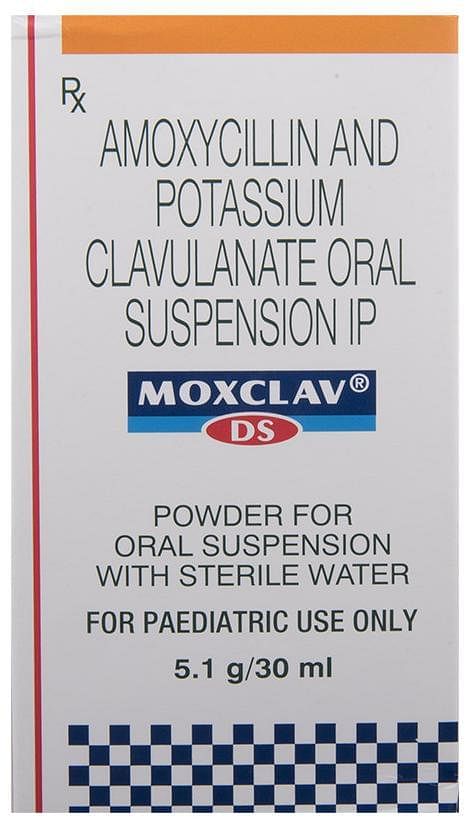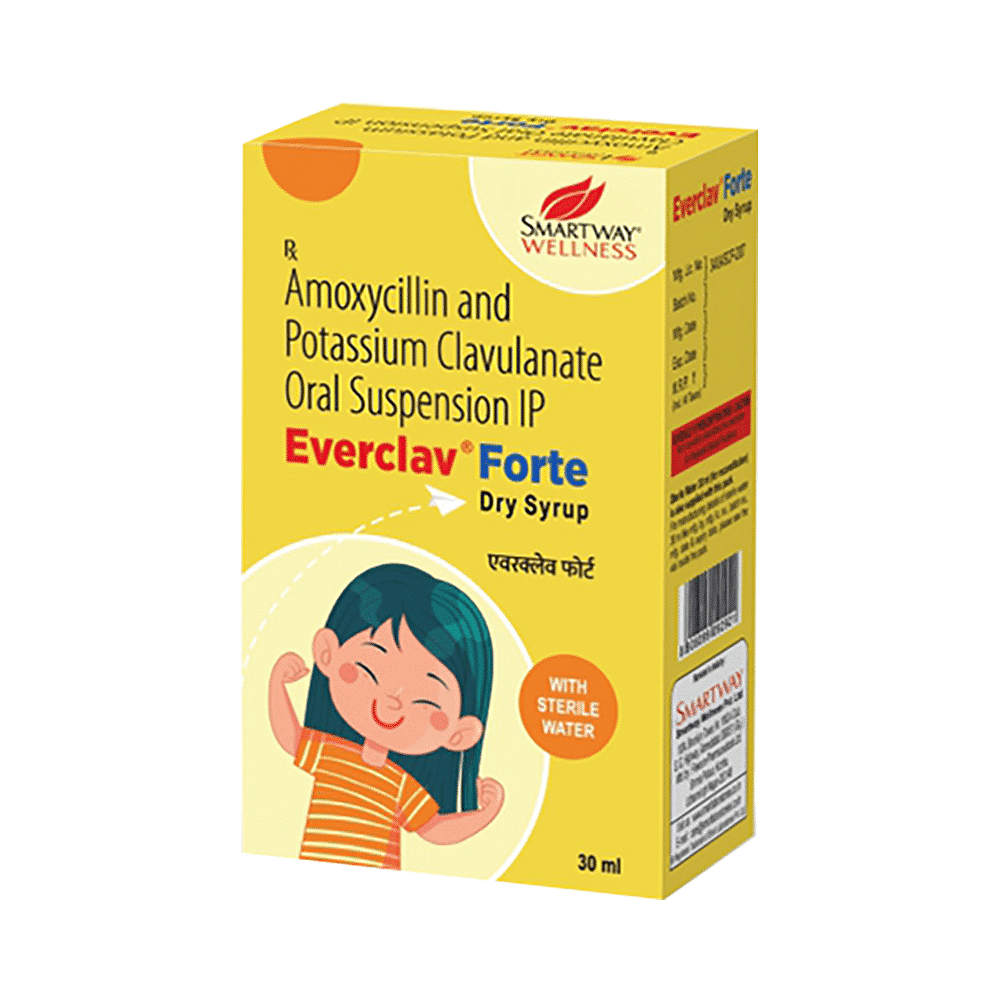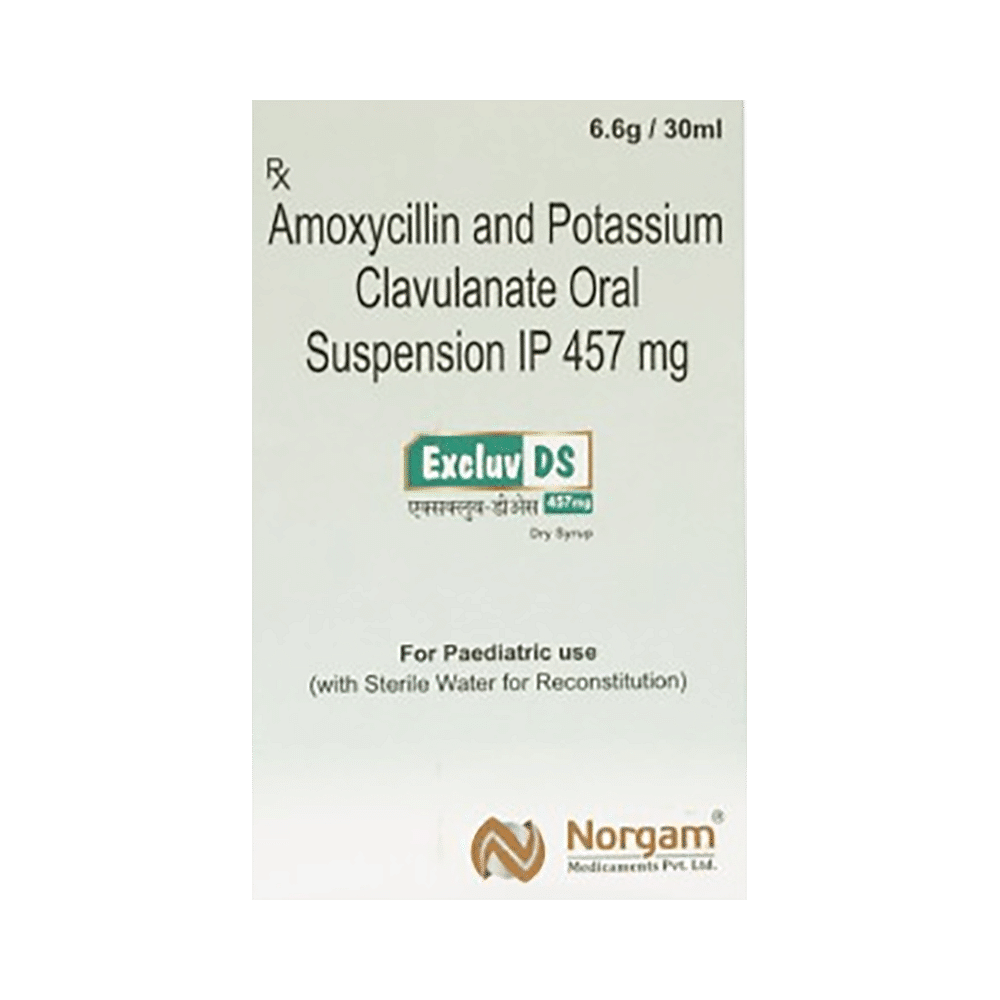
Nojinox Duo Oral Suspension
Manufacturer
Naviksha Healthcare Pvt Ltd
Salt Composition
Amoxycillin (400mg) + Clavulanic Acid (57mg)
Key Information
Short Description
Nojinox Duo Oral Suspension is an antibiotic medicine that helps treat bacterial infections of the ear, nose, throat, chest, lungs, teeth, skin, and urinary tract.
Dosage Form
Oral Suspension
Introduction
Nojinox Duo Oral Suspension is an antibiotic medicine that helps treat bacterial infections of the ear, nose, throat, chest, lungs, teeth, skin, and urinary tract. It is capable of killing bacteria that have become resistant to other therapies and thus also helps treat tuberculosis that is resistant to other treatments.
Directions for Use
Your child must complete the entire course of antibiotics. Stopping too soon may cause the bacteria to multiply again or cause another infection.
Safety Information
Side Effects
Bitter taste in the mouth Diarrhea Itchy rash Facial swelling Breathing difficulty
How it works
Nojinox Duo Oral Suspension is an antibiotic. It has two active agents amoxycillin and clavulanic acid. Amoxycillin works by preventing the formation of the bacterial protective covering (cell wall) essential for the survival of the bacteria. Whereas clavulanic acid serves a special purpose of inhibiting an enzyme (beta-lactamase) that is produced by resistant bacteria.
Quick Tips
Your child must complete the entire course of antibiotics Encourage your child to drink plenty of water in case diarrhea develops as a side effect Never give Nojinox Duo Oral Suspension until and unless prescribed by the doctor Do not give Nojinox Duo Oral Suspension to treat common cold and flu-like symptoms caused by viruses Check 'expiry' before giving Nojinox Duo Oral Suspension to your child
Related Medicines

Mox CV DS CP Oral Suspension Delicious Strawberry

Moxclav DS 457mg Oral Suspension

Joymentin DS Oral Suspension

Everclav Forte Dry Syrup

Fealmox CV Forte Oral Suspension

Xclav DS Oral Suspension

Aklox-CV Duo Dry Syrup

Moxyvil CV Dry Syrup

Excluv DS 457mg Dry Syrup

Claviox 457 Dry Syrup
Frequently asked questions
Can other medicines be given at the same time as Nojinox Duo Oral Suspension?
Nojinox Duo Oral Suspension may interact with other medications. It is crucial to inform your child's doctor about all other medications your child is taking before starting Nojinox Duo Oral Suspension. Always consult your child’s doctor before administering any medication to them.
Can I get my child vaccinated while on treatment with Nojinox Duo Oral Suspension?
Antibiotics usually do not interfere with vaccines or cause adverse reactions in children who have recently been vaccinated. However, it's best to wait until your child fully recovers from the illness before getting a vaccine. Once they feel better, you can administer the vaccine.
Which lab tests may my child undergo while taking Nojinox Duo Oral Suspension on a long-term basis?
Long-term therapy may require periodic monitoring of kidney and liver function tests to ensure your child's health. It is essential to discuss with their doctor about the need for these tests.
Can I give a higher than the recommended dose of Nojinox Duo Oral Suspension to my child?
No, exceeding the recommended dosage can increase the risk of side effects. If your child experiences increased symptoms, consult their doctor for re-evaluation.
Can I stop giving Nojinox Duo Oral Suspension to my child when the symptoms are relieved?
No, do not discontinue the medication unless you have finished the full course of treatment. The symptoms may improve before the infection is completely eradicated. Therefore, continue administering the medicine for the entire course as it may still be providing benefits.
Can the use of Nojinox Duo Oral Suspension cause diarrhea?
Yes, Nojinox Duo Oral Suspension can cause diarrhea. This is because it's an antibiotic that eliminates harmful bacteria. Additionally, the medicine may disrupt the balance of helpful bacteria in your child’s stomach, leading to diarrhea. Encourage your child to consume plenty of fluids if they experience diarrhea. If the diarrhea persists or you notice signs of dehydration (reduced urination with dark-colored and strong-smelling urine), consult your doctor before administering any other medications.
Do all viral common colds result in secondary bacterial infection?
While most viral common colds do not lead to bacterial infections, antibiotics should only be used after consultation with your child's doctor when a bacterial infection is present. Antibiotics can disrupt the natural balance of bacteria and might create resistance.
The mucus coming out of my child’s nose is yellow-green. Is it a sign of a bacterial infection?
Yellow or green nasal mucus does not necessarily indicate a need for antibiotics. During a common cold, the mucus thickens and changes color to become yellow or green. Symptoms typically last 7-10 days.
Is there any sign which shows that my child needs immediate medical attention?
Contact your child's doctor immediately if they experience signs of a severe allergic reaction (difficulty breathing, skin rash), gastrointestinal issues (diarrhea), or liver damage (weakness, pallor, vomiting). While rare, these side effects require expert medical evaluation.


